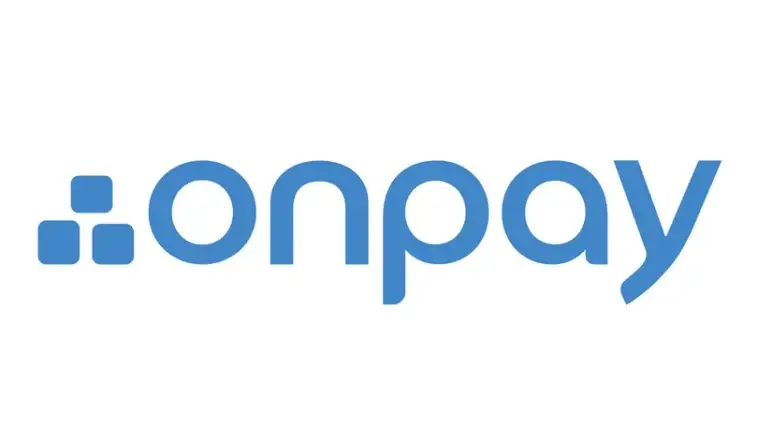This post may contain affiliate links. Please read my affiliate disclosure for more information.
In the ever-evolving landscape of payroll and HR management, businesses are increasingly turning to specialized platforms to streamline their administrative tasks.
OnPay and Paychex are two prominent players in this arena, offering solutions that cater to the complex needs of businesses in managing payroll, benefits, and HR processes.
In this article, we will provide an in-depth comparison of OnPay and Paychex, exploring their features, pricing models, as well as the pros and cons of each platform.
Overview of OnPay

OnPay is a cloud-based payroll and HR solution designed to simplify the complexities of payroll processing, tax compliance, and benefits administration. The platform offers features that cater to businesses of various sizes, focusing on user-friendliness and automation to enhance efficiency.
Overview of Paychex

Paychex is a comprehensive HR and payroll platform offering services that cover payroll processing, benefits administration, time and attendance tracking, and more. Paychex caters to a wide range of businesses, from small startups to large enterprises, aiming to provide scalable solutions that streamline workforce management.
Feature Comparison
| Features | OnPay | Paychex |
|---|---|---|
| Payroll | Payroll processing, tax compliance | Payroll processing, tax services, W-2 filing |
| Benefits | Benefits administration, retirement plans | Comprehensive benefits administration |
| Time Tracking | Basic time tracking capabilities | Integration with time and attendance systems |
| HR Services | HR document storage, employee self-service | HR compliance, employee self-service |
| Reporting | Standard reporting features | Customizable reporting and analytics |
| Integrations | Limited integrations with other tools | Extensive integration options |
| Customer Support | Phone, email, and chat support | Multi-channel customer support |
Pricing Models
Both OnPay and Paychex offer flexible pricing models tailored to different business needs. The exact pricing can vary based on factors such as the number of employees, specific features required, and any additional services.
OnPay Pricing
OnPay typically offers a transparent pricing structure based on the number of employees. This flat monthly fee includes access to all features, and businesses can scale their subscription as their workforce grows. OnPay often provides a trial period for businesses to experience the platform before making a commitment.
Paychex Pricing
Paychex’s pricing model can be customized based on the range of services required, the size of the business, and specific industry needs. While Paychex does not publicly display pricing information, it typically involves a base fee with additional charges for various services. Potential clients can request a quote to understand how Paychex’s pricing aligns with their requirements.
Pros and Cons
OnPay Pros:
- User-Friendly: OnPay is known for its user-friendly interface, making it accessible for businesses of all sizes and tech-savviness levels.
- Benefits Management: OnPay offers benefits administration and retirement plans, catering to businesses seeking to provide comprehensive employee packages.
- Scalability: OnPay’s pricing model allows businesses to scale their subscription as their workforce grows, providing flexibility for expansion.
OnPay Cons:
- Limited Integrations: OnPay offers fewer integrations compared to some other platforms, which might be a consideration for businesses with specific software requirements.
- Feature Depth: While OnPay covers essential payroll and benefits features, it might lack some of the advanced functionalities found in larger enterprise solutions.
Paychex Pros:
- Comprehensive Solution: Paychex offers a wide range of services, including payroll, benefits, time and attendance tracking, HR compliance, and more.
- Integration Options: Paychex provides extensive integration options, allowing businesses to connect the platform with other tools they already use.
- Customizable: Paychex’s customizable plans enable businesses to tailor their service package to meet their unique needs and industry requirements.
Paychex Cons:
- Learning Curve: Due to its comprehensive nature, Paychex might have a steeper learning curve, particularly for smaller businesses with simpler requirements.
- Potentially Higher Costs: The breadth of services offered by Paychex might lead to relatively higher costs, which could be a factor for budget-conscious businesses.
Conclusion
In the realm of HR and payroll management, both OnPay and Paychex offer robust solutions to cater to the diverse needs of businesses. While OnPay stands out with its user-friendly interface and benefits management capabilities, Paychex shines with its comprehensive suite of HR services and extensive integration options.
The choice between these platforms depends on the specific requirements and priorities of your business. Smaller businesses might find OnPay’s simplicity and scalability appealing, while enterprises seeking an all-in-one solution with advanced features might lean towards Paychex.
Ultimately, both OnPay and Paychex aim to streamline administrative tasks, optimize payroll and benefits management, and enhance workforce efficiency for businesses in today’s ever-changing business environment.

